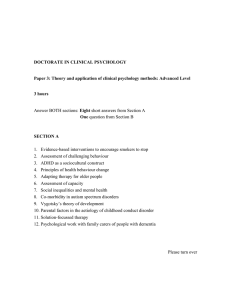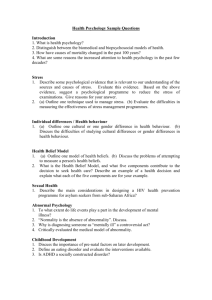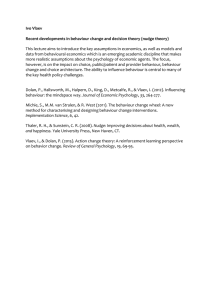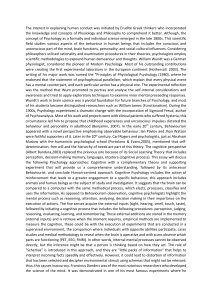*
advertisement
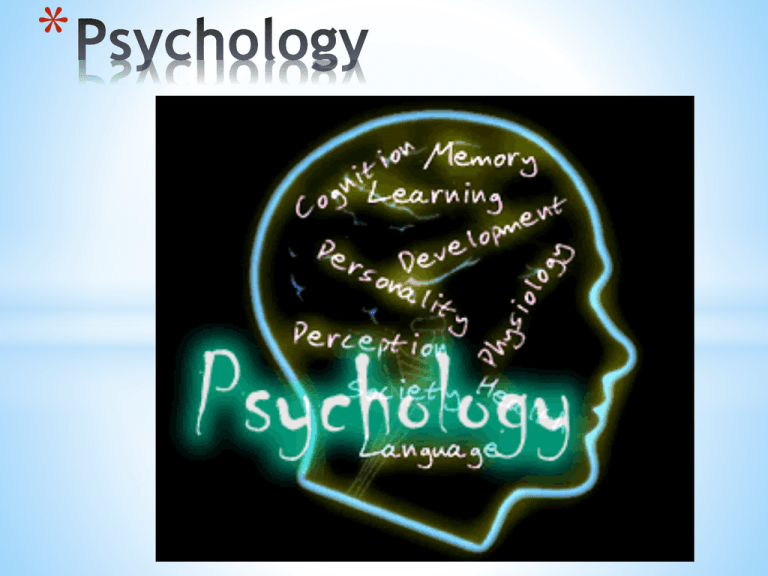
* * study of how and why humans act as they do Instead of studying how humans function in cultures or societies, psychology focuses on the individual, and the personal and unique experiences that influence how the individual acts and thinks * Experimental Psychology The branch of the discipline that sets up experiments to see how individuals act in particular situations Question - Would you help a complete stranger that was being threatened with violence from another person? * CLINICAL PSYCHOLOGY is the branch of the discipline that develops programs for treating individuals suffering from mental illnesses and behavioural disorders Eg. Psychologists treat dangerous offenders in federal prisons in an attempt to prevent them from reoffending on release Like the other social sciences, psychology has been divided into a number of schools of thought: Psychoanalytic Theory Behaviouralism Learning Theory * * The mind is divided into two parts: the conscious (aware of ) and the unconscious (not aware of) According to psychologists, our unconscious mind has more influence than our conscious mind on our personalities and behaviour * The Unconscious mind is divided into three parts: 1. 2. 3. Id – which encourages us to seek physical satisfaction Superego – prompts us to do the moral thing, not the one that feels best Ego – the referee between the two and deals with external reality, this is our most conscious self * Behaviourists believe that psychologists can predict and control or modify human behaviour by identifying the factors that motivate it in the first place Behaviourists placed particular stress on the early childhood years, and the rules or practices parents use to raise their children because they believe these methods have a huge influence on the character of individuals even into adulthood * Learning Theorists agree that humans are born with little instinct but much learning potential They believe that most human behaviour is learned, especially in childhood and youth By controlling the way in which humans learn behavious, society can have a great influence on their ultimate personalities Believe that children who were brought up in loving families would grow up to become secure and loving adults, but only if parents provided clear and consistent expectations for good behaviour, and swift but fair consequences for bad behaviour * Cognitive Dissonance Theory Six Stages of Change (Behaviour Modification) -Pre-contemplation (denial, refusal) -Contemplation (questioning) -Preparation (investigation) -Action (commitment) -Maintenance (transition) -Termination (completion) Positive and Negative Reinforcement * Focus on people’s behaviours (what they do) and attitudes (what they think) Key Questions: -what must people do to successfully change their behaviours -what factors make behaviour-modification programs successful? -do most people need help changing behaviour, or can they be self changers? Example: Consider an individual who has been convicted three times for driving under the influence. Is it necessary to change a person’s attitude about drinking before he or she will stop drinking and driving?
